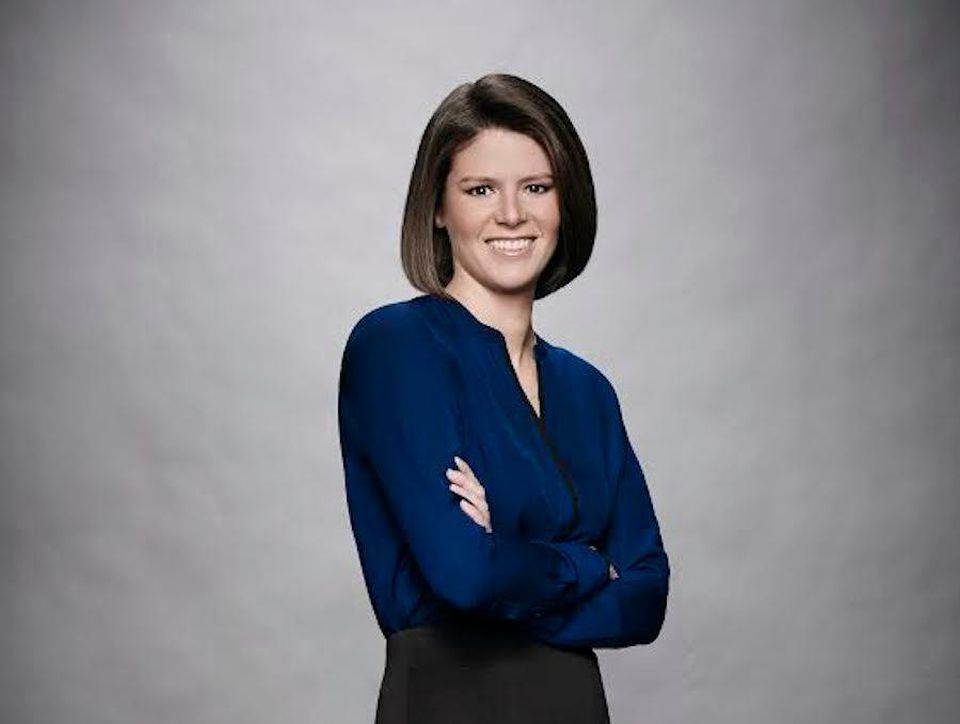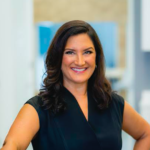It is challenging to be a journalist in today’s political climate – especially for political journalists. Kasie Hunt, an NBC News Capitol Hill correspondent covering Congress for NBC News and MSNBC shows including Kasie DC, has faced the challenges first-hand.
The hardest thing for Hunt is understanding how to be objective in the Trump era, even though she learned how to separate her personal views from her political reporting early in her career. “Up until recently, regardless of political party, politicians adhered to the basic tenants of our government. We now live in a world of ‘alternative facts,’ where ‘truth isn’t truth,’ when unfavorable news coverage is dismissed as ‘fake news,’ and where fact-checkers can’t keep up,” says Hunt. “It is a daily challenge to figure out how to cover President Trump and his administration while also being clear about when those tenants aren’t being followed.”
I spoke to Hunt to find out her advice for political journalists and what she’s learned from asking tough questions and reporting on some of the country’s most powerful politicians.

You recently won the Radio and Television Correspondents’ Association’s Joan Shorenstein Barone Award for your team’s reporting on sexual harassment on Capitol Hill. What was the reporting process?
This is a tough story to cover because it’s so personal to so many people and women still risk so much when they come forward. There were very few women who would talk to us on the record. President Trump’s victory showed accusations don’t necessarily matter to some voters – and working for a politician is often more than a job, it’s a cause, and it can be hard to come forward if it’s seen as hurting the cause. We found that women were, and still are, afraid they won’t get jobs in politics and that fear came through in the reporting.
It was an incredible team effort. From the key team covering Capitol Hill, to the producers at NBC Nightly News, TODAY and the incredible team at Kasie DC that doggedly covered this week after week even if it fell from the top headlines.
Each thread or anecdote often came through a carefully built relationship of trust, often times from a previously existing personal friendship or connection. It was a Herculean undertaking from everyone on the team including Rich Gardella, Leigh Ann Caldwell, Marianna Sotomayor, Alex Moe, Charlie Gile, Kendall Breitman, Garrett Haake and Frank Thorp.
You’ve spoken about the #MeToo movement and sexual harassment on the air often. From your reporting, what advice would you give to women and men who experience sexual harassment at work?
It’s clear the culture is changing and staying silent isn’t the only option any longer. That in itself is progress.
I’ve always told people to be aware of their surroundings and never put yourself in a situation that makes you uncomfortable. Look out for yourself. But also remember you have allies and look to trusted mentors and friends for advice. Changing the culture of fear one situation at a time is so important, so use your voice.
How did you choose political reporting after studying international affairs at George Washington University? What drew you to politics?
I began college during the Iraq War and initially wanted to be a foreign correspondent. But by the time I graduated, I’d completed internships covering politics and Capitol Hill. I got the political bug and never stopped, including covering the 2016 presidential campaign. The stakes are high, and the pace is unpredictable; it becomes addictive.
You also cover Capitol Hill and recently covered the midterm elections. What is the most challenging thing about covering Capitol Hill?
Covering Capitol Hill was my first assignment in political journalism, and I still think it is the best beat in Washington.
When you cover the White House, which I’ve done on and off, it’s relatively straightforward – everything the President does is news.
On the Hill, a very arcane statement from a relatively unknown politician can actually be a huge screaming headline while a seemingly outrageous statement from a household name in Congress can be meaningless when it comes to actual policy.
It takes time and experience to figure out the difference.
You feature guests from both sides of the aisle for your show Kasie DC. How do you stay objective and ask tough questions given today’s polarized political climate?
Being respected by people on both sides of the aisle is really important to me — even in an age when giving a hearing to “both sides” is considered a smear in some corners.
It’s incredibly important to build trusting relationships with good people on all sides. Emphasis on good people. I trust viewers will ultimately reward us for that.
I want politicians to know they can come on the show for a fair but tough hearing. Sometimes it’s clear to politicians that they need to do the tough interview to get past a difficult situation and I want my viewers to trust that my show is that place.
What is a typical day like as a political journalist and on-air correspondent?
The best part is that there is no “typical day” but instead a rhythm to covering the Hill that I like. You can wake up in the morning agonizing that you don’t have a story and then have an incredible news day land in your lap. I usually am up for Morning Joe or TODAY, then have news conferences with top Hill leaders followed by live shots in between all while likely working on a script for NBC Nightly News. But all that can change at any moment.
What is one thing that you wish you had known when you were starting out your career?
That what felt like drudgery in early jobs was actually the most incredible opportunity to learn from the best people in the business.
What is the best advice you’ve ever received?
“Own it.” It was the very first of countless pieces of advice I ever received from Mika Brzezinski, who has been the most incredible mentor. It’s still written on the whiteboard in my office.
What is your career advice for other young professional women?
Never let anyone take you less seriously than they take your male peers. Don’t fail to notice when that happens and don’t fail to do something about it.

































Pingback: My Favorite Career Profile Quotes of 2018 - Elana Lyn